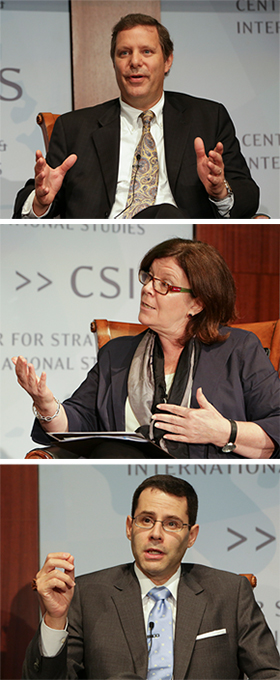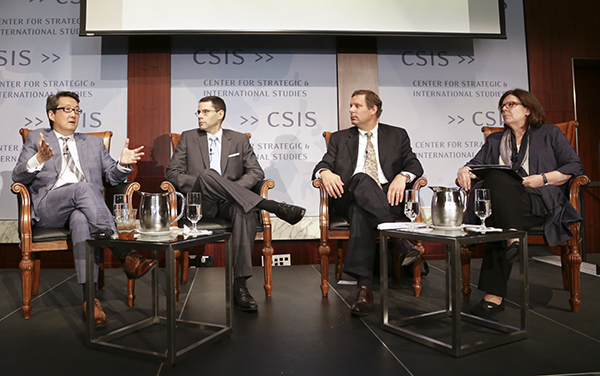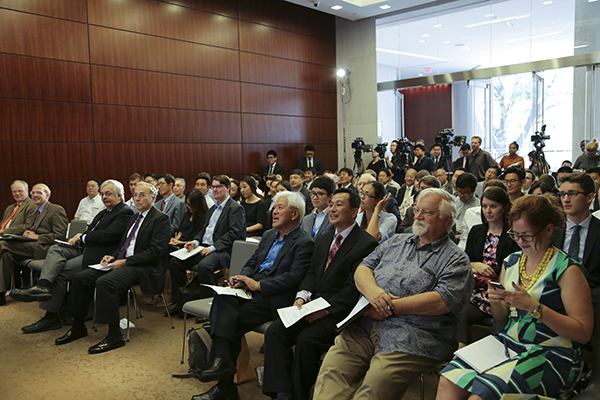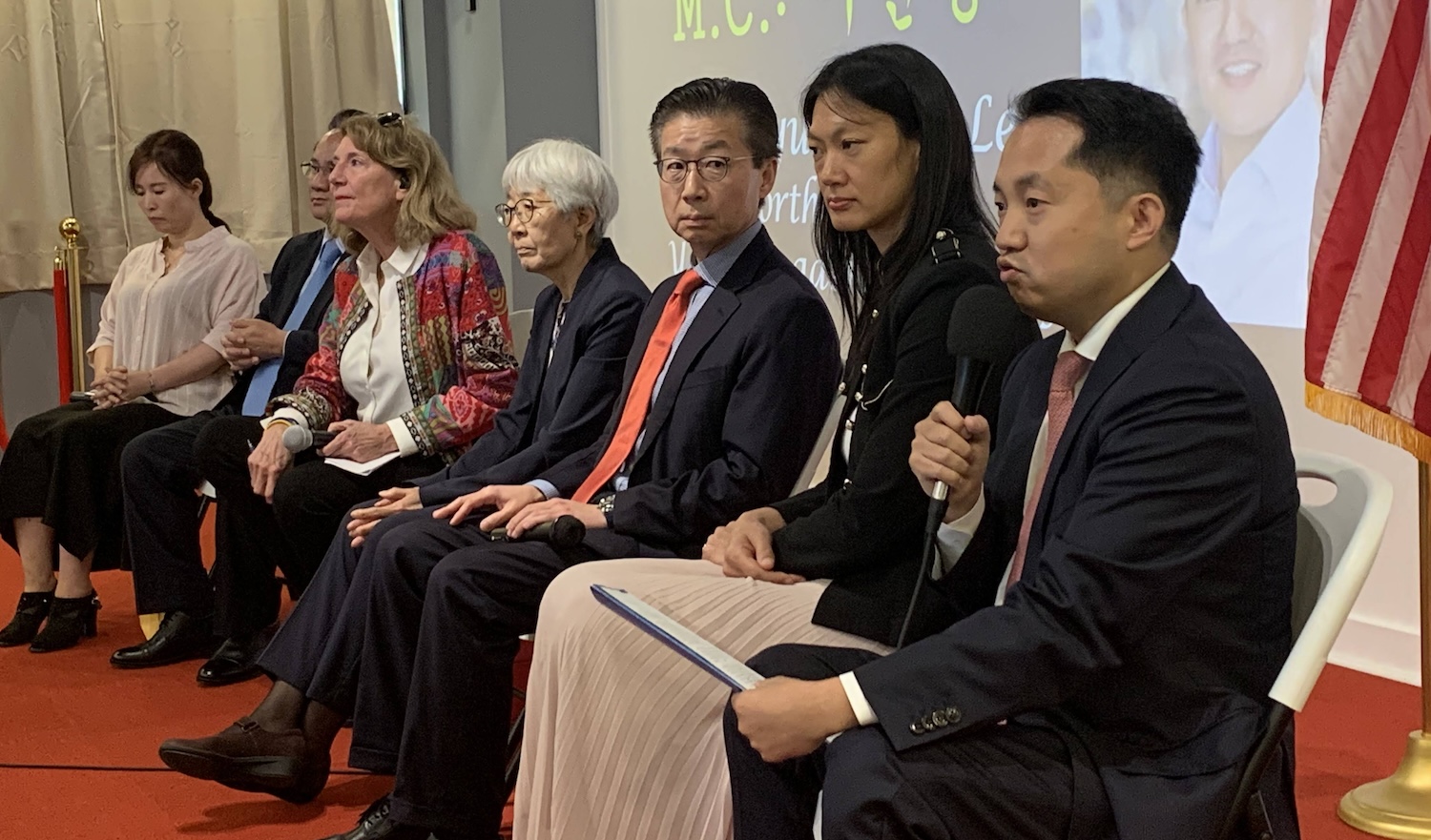
James Schoff, Senior Associate of Carnegie Endowment for International Peace (top), Sheila Smith, Senior Fellow for Japan Studies of Council on Foreign Relations and Michael Auslin, Resident Scholar of American Enterprise Institute explore relations between Japan and South Korea.
Japan would view Korean reunification in a positive light according to participants at a forum held yesterday on Japan-South Korea: Finding Common Ground. “I don’t believe Japan secretly wants a divided Korea,” said James Schoff of the Carnegie Endowment for International Peace. He added that reunification would remove the security threat from North Korean missiles and open new markets for Japan.
Sheila Smith of the Council on Foreign Relations said that Japan would have an interest in partnering with South Korea to help resolve transitional issues such as environmental cleanup that would arise during reunification.
Michael Auslin of the American Enterprise Institute said reunification would be “a big positive for Japan” but warned that there would be concerns that a reunified Korea remain within a Western sphere of democracy and values.
The forum was jointly sponsored by the Center for Strategic & International Studies (CSIS) and the Global Peace Foundation, and moderated by Victor Cha, Korea Chair at CSIS. It was the last in a series of five forums on Korean reunification.
In the short term, the panelists were very concerned about the current state of Japan-Korea relations. Emotions are running high in Korea on a number of issues while the Japanese public is speaking of “Korea fatigue.” Smith said there was “a more visceral conservative backlash to relations with Seoul than before” in Japan. Schoff saw this as the result of opposed perceptions of the colonization of Korea and Japan’s role in World War II.
In response, the two governments should focus on areas of common interest such as regional trade and finance, response to pandemics, and the North Korean nuclear and missile threat and highlight these with their publics, according to Schoff.

Moderator Victor Cha, Korea Chair of CSIS with forum panelists.
Smith said that it would take more than government action to build trust between the two nations. It would also require civil society initiatives. She reminded the audience that Kim Dae-jung had said the 20th century was just a blip in the long history of Japan-Korea relations and called on both people to take a larger view.
“No leader since has done that,” said Smith. She stressed the need for serious political leadership in both countries to establish a broader, forward-looking vision of their relationship and also sell it to their publics.

Audience at “Japan-South Korea: Finding Common Ground” in Washington, DC.
Washington could be much more imaginative in its approach to its two allies in the region, according to Auslin. He urged the U.S. ask the question of itself and its allies, “What type of Asia do we want to see in the future?” He hoped that Japan and Korea would cooperate in maintaining the open, rule-based global order that had worked well but was now under threat from many sources.



